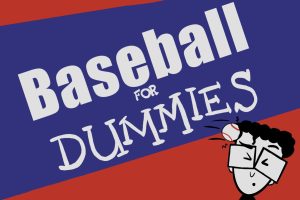When two planes meet at a forty-five degree angle they create what we most commonly refer to in the English language as a “corner.”
Well, there are two planes of fantastic existence in the world of television right now—the show “Mad Men” on AMC and “Eastbound & Down” on HBO. Of course, there is the new show on HBO called
“Board Walk Empire” directed by Martin Scorsese, but I haven’t watched that yet so I will save my critiques until I have seen it thoroughly.
We will start with “Mad Men” now in its fourth season with John Hamm playing the deceitful, yet astoundingly cool and dapper, Don Draper.
This season is weird, because it is the down fall of Don Draper, who has: lost his wife, has partial custody of his children, lost his house and lives in a flat in Greenwich Village, in the process of watching his company dwindle into obscurity and nothingness and lost the general charisma that would make a Don Draper.
This comes of as very strange when the season first starts, but all of these things are consequences for all of Drapers actions in the first three seasons, when he was philandering, drinking, lying and kicking ass in the boardroom.
Like in the real world, “Mad Men” creates a subtle and sometimes harsh balance to the universe, everything causes and reacts.
What else makes the show so captivating is how it seems to be turning into one grand allegory.
In the first season, set in the early 60’s, Draper leads an assumedly perfect life. He’s a successful businessman, with a beautiful wife, two beautiful children and a beautiful house in the country.
But what lies underneath is never really addressed (the aforementioned philandering, drinking, lying etc.).
Likewise, the American way of life is seemingly perfect, but again, there is no addressing of what lies beneath in the dark recesses of American culture: Civil Rights Issues, Cuban Missile Crisis,
Communist hysteria, the beginnings of the Viet Nam War and the common unhealthiness of everyone.
This is all played very subtly in the background of what these characters are doing, which is a great effect. As these things within American culture come to the forefront of the American middle-class or upper class consciousness, so do Draper’s faults.
This makes the show so complex and so neatly unfolded over the first four seasons, that it might be one of the greatest things ever put on television, seriously. It is a melodrama, allegory, unlike anything I’ve ever seen in the medium. Pure sophistication.
Now, we must lead to the other plane and the complete antithesis of sophistication, “Eastbound & Down.”
Danny McBride continues his fabled existence as Kenny Powers. This is only the second season of “Eastbound & Down” and only the fourth episode of the season (there are six total episodes). But regardless, we find Kenny Powers, once famed baseball relief pitcher cast into obscurity after losing his famous 101 MPH fastball in Mexico.
Powers is a true xenophobic, naïve, earnest American. He’s brash, addicted to drugs, fowl mouthed and generally intolerable to most people.
What the show follows in both first and second seasons are he and all of the people who try to tolerate him. The only reason that the show is so good is because no one watching it has to deal with Kenny Powers. We can sit and watch his exploits and laugh, because he is such a caricature of all of these southern stereotypes.
This second season is much the same as the first season. Kenny is trying to make a comeback into the Major Leagues, because he can’t do anything else.This time, though, Kenny is in Mexico, where he is a cockfighter and thug, assuming the identity of his friend Stevie, who he is defrauding.
Kenny is in Mexico searching for a man named Eduardo Sanchez, though he never explains why, and he’s simply avoiding his family and friends at home. He abandoned them in lue of explaining why he hadn’t been picked up by Tampa Bay (a miscommunication on behalf the agent trying to sign him and his own overzealousness).
Kenny quickly finds a new love interest in Mexico, and joins the local baseball team “The Charros” only after abandoning his life as thug “Steve.” His arrogance soon leads him into his same destructive path, where he eventually quits the baseball team and journeys to a remote town in Mexico to confront Eduardo Sanchez.
For a show about dumb people, the plot is relatively dense.
The show is laden in obscenities, nudity, sex, racism, and weirdly—heart. One will immediately love all of the characters in all of their bad traits. This is the defining characteristic of the show, making it another fantastic program on television.
5 out of 5 for both.






